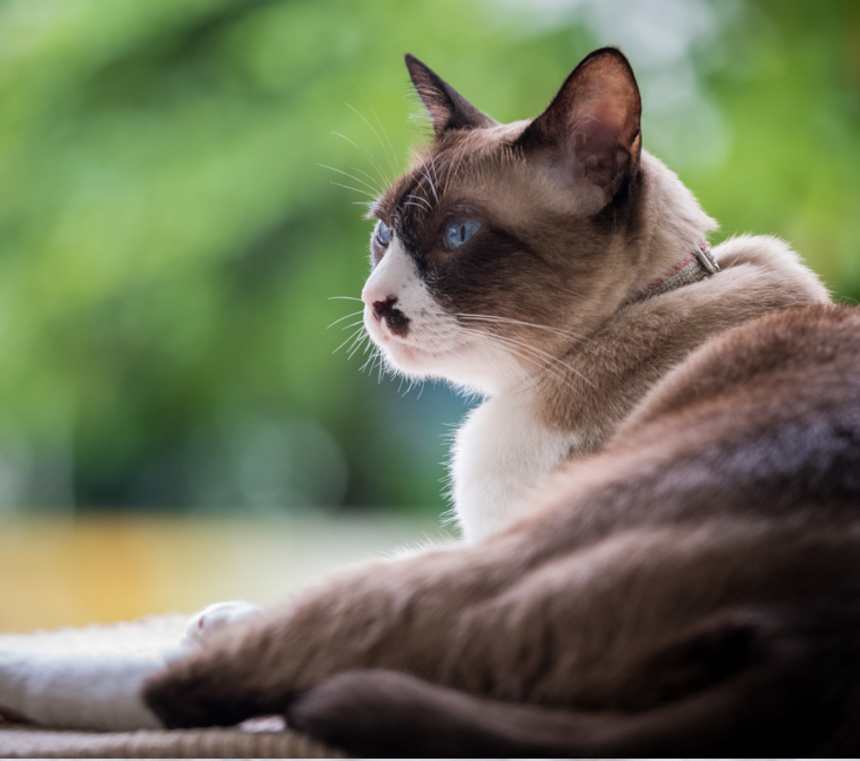What diseases are Snowshoes prone to?

Like all cats, Snowshoes may develop the following:
- Chronic kidney disease (CKD): This is a common condition in cats in which the kidneys gradually lose function over time, leading to issues such as dehydration, weight loss, and increased thirst and urination. It’s often managed through diet, medication, and check-ups to maintain quality of life.
- Diabetes: This condition occurs when a cat’s body cannot properly regulate blood sugar levels, often due to insulin resistance. It can lead to symptoms like increased thirst, frequent urination, and weight loss. Managing diabetes usually involves a combination of diet, insulin injections, and ongoing check-ups.
- Hyperthyroidism: This is a common endocrine disorder in older cats in which the thyroid gland produces too much thyroid hormone. It can cause symptoms such as weight loss, increased appetite, rapid heart rate, and excessive thirst. Treatment options include medication, dietary changes, or surgery, depending on the severity..
- Periodontal disease: This dental condition involves inflammation and infection of the tissues around the teeth. It can lead to bad breath, gum swelling, widespread infection, kidney issues, and tooth loss if not treated. Routine dental check-ups and brushing can help prevent and manage periodontal disease.
- Obesity: Like many cats, Snowshoes can be prone to obesity if they’re overfed or not sufficiently active. Obesity can lead to various health issues, including diabetes and joint problems. Keeping them on a balanced diet, providing regular exercise, and monitoring their weight are important for preventing and managing obesity.
Regular veterinary check-ups, screenings, preventative care, and early treatments can help manage and prevent these conditions, helping your Snowshoe cat stay as happy and healthy as possible.